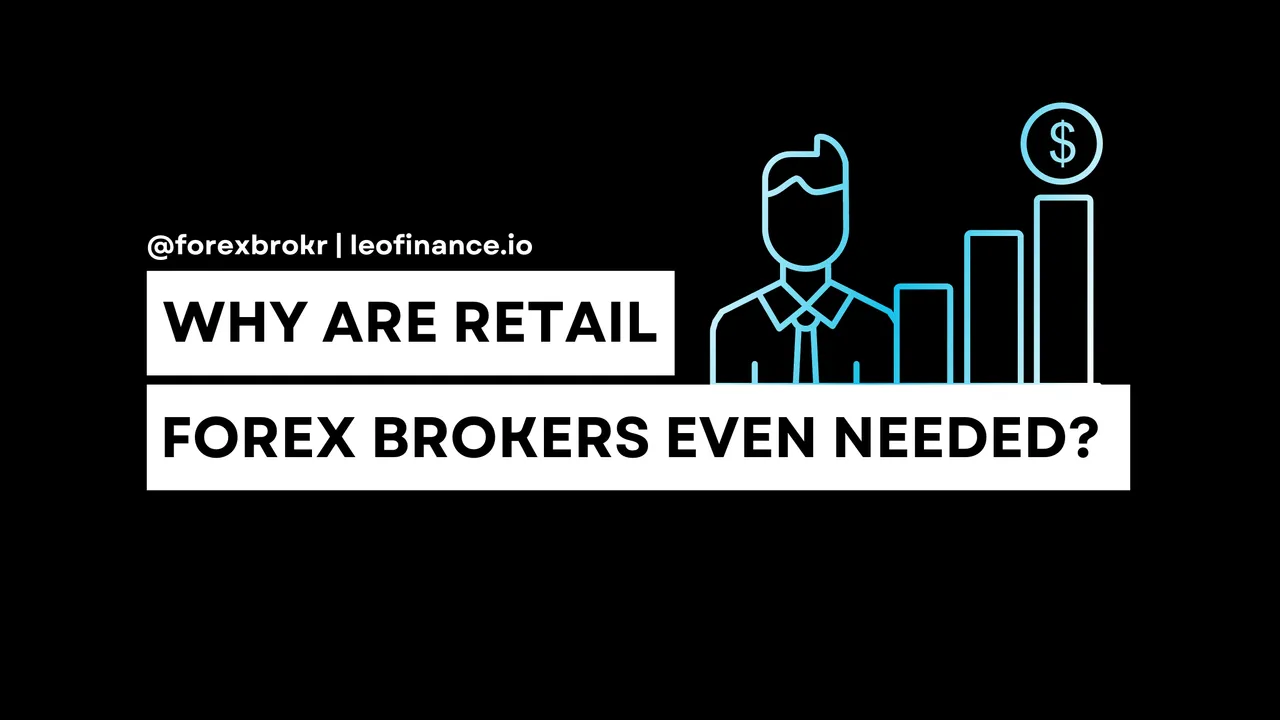
Direct from the desk of Dane Williams.
“Fuck it, I don’t need a forex broker. I reckon I could just trade directly into the interbank market without them!”
😂.
Retail forex brokers serve as intermediaries between individual traders known as retail clients and the foreign exchange – or forex – market.
Unfortunately as a retail trader, direct interaction with the market unmediated by a broker is not feasible.
I take a look at the major reasons why in the blog post below.
Access to the market
Participating directly in the forex market without a broker is not a practical option for most retail traders, regardless of their dollar amount.
The forex market is primarily an institutional market where large financial institutions, central banks, corporations, and other significant players engage in currency trading.
These participants trade in massive volumes and have direct access to the interbank market, which is where most of the forex trading takes place.
Retail traders, on the other hand, typically do not have the resources, infrastructure or market access to trade directly in the interbank market.
The costs and complexities involved in setting up the necessary connections and infrastructure would far exceed any potential benefits.
Furthermore, the interbank market often requires high minimum transaction sizes, making it infeasible for individual retail traders to participate directly.
The minimum transaction sizes can be in the millions or even tens of millions of dollars.
For retail traders, using a forex broker is the practical and accessible way to access the forex market.
Brokers aggregate orders from multiple retail traders and route them to the interbank market or other liquidity providers.
This enables retail traders to trade smaller position sizes, use leverage and access the market without needing the substantial capital or infrastructure required to trade directly in the interbank market.
Leverage and the ability to trade on margin
Participating directly in the forex market without a broker or leverage is not a practical option for most retail traders, regardless of position size.
As mentioned earlier, the forex market is primarily an institutional market where large financial institutions, central banks and corporations trade in massive volumes.
These participants have the resources and market access to trade directly in the interbank market.
Without a broker, retail traders would need to establish direct relationships with banks or other large financial institutions to access the interbank market.
This would require significant capital, infrastructure and regulatory compliance.
Additionally, the minimum transaction sizes in the interbank market are often prohibitively high for individual retail traders.
Furthermore, leverage is not the only consideration when it comes to trading directly in the forex market.
Even without leverage, the costs, complexities, and barriers to entry for trading directly are substantial.
The role of retail forex brokers in practice
In practice, retail traders use brokers to access the forex market and benefit from leverage, margin trading and the convenience of user-friendly trading platforms.
Brokers provide a way for retail traders to pool their orders and access the interbank market collectively, allowing them to trade smaller position sizes with the advantages of leverage.
Whatever you reckon, the harsh reality is that you need a retail forex broker and can’t just trade directly into the interbank market without them.
Best of probabilities to you.